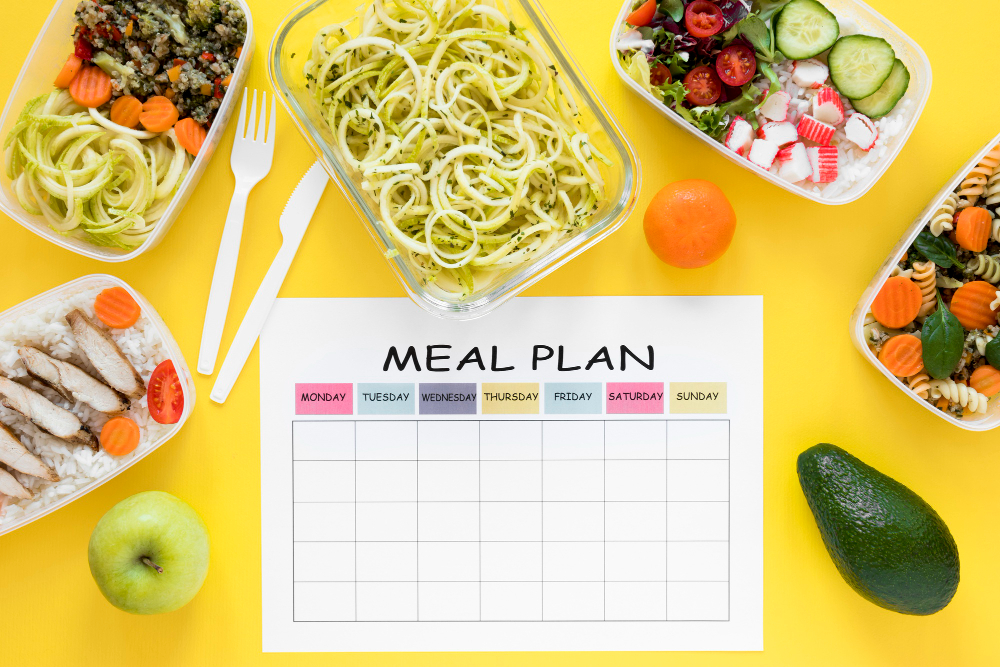Why You’re Not Losing Belly Fat: 7 Hidden Reasons No One Talks About
✨It’s Not Just Diet and Exercise — Discover What’s Really Holding You Back!✨
Start Your Flat Belly JourneyTable of Contents

Introduction
Why Belly Fat Matters
“If you’re wondering why you’re not losing belly fat, it’s time to understand why that stubborn belly is more than just an aesthetic concern.”
📍 1. Belly Fat Is Not Just Fat — It’s Biologically Active and Dangerous
Unlike fat in your arms or thighs, belly fat (visceral fat) surrounds your internal organs and is metabolically active, releasing harmful chemicals that promote inflammation and insulin resistance.
🧠 Fact: Visceral fat increases your risk of:
Type 2 Diabetes
Heart Disease
Stroke
Breast and Colorectal Cancers
🔗 Source:
Harvard Health – Why belly fat is more dangerous
CDC – The health risks of overweight & obesity📍 2. It’s a Sign of a Failing Metabolism
If you’re gaining belly fat despite working out, it often points to an inefficient metabolism, hormonal imbalance, or poor insulin response. These are common hidden reasons why you’re not losing belly fat.
🧪 Fact: Your waist size is often a better predictor of disease risk than BMI.
🔗 Source:
National Institutes of Health (NIH) – Abdominal Fat and Health📍 3. Hormones Play a Huge Role
High cortisol (stress hormone) and low insulin sensitivity contribute to belly fat storage. Chronic stress, poor sleep, and overtraining all fuel this imbalance.
🔁 More belly fat → More hormonal dysfunction → Even harder to lose fat
🔗 Source:
Mayo Clinic – Stress and Weight Gain📍 4. It Impacts Confidence, Energy, and Mental Health
Carrying extra belly fat can make you feel:
Sluggish and tired
Self-conscious socially
Frustrated with results, even after trying everything
🧠 This psychological toll often leads to emotional eating and worsens the problem — one of the overlooked reasons why you’re not losing belly fat.
🔗 Source:
Cleveland Clinic – How Weight Affects Mental Health✅ Bottom Line
If you still wonder why you’re not losing belly fat, realize it’s not just about aesthetics — it’s a serious health signal.
Even modest fat loss can:
Improve blood sugar control
Lower blood pressure
Reduce inflammation
Boost your energy & confidence
🔗 Source:
Johns Hopkins – Why Visceral Fat Is Dangerous💡 Related Reading:
👉 Best Belly Fat Workouts for Women Over 40 You Can Do at Home
Common Mistakes in Fat Loss: Why You’re Still Not Losing Belly Fat
Losing fat is hard — and losing belly fat is even harder. If you’ve been dieting, exercising, and cutting calories but still not losing belly fat, you’re not alone.
The truth is: many people make a few common — yet hidden — mistakes that silently sabotage their progress.
Here’s a breakdown of 7 real reasons you’re not losing belly fat, based on science and expert-backed advice.
✅ 1. You’re Eating “Healthy,” But Still Overeating
One of the most common mistakes is assuming that “healthy food” equals “fat loss food.”
Foods like nuts, peanut butter, avocado, and protein bars are healthy — but high in calories.
Even healthy meals, if eaten in large portions, can put you in a calorie surplus.
👉 Fix it:
Track your calories using apps like MyFitnessPal or Chronometer, and weigh your food until you get a feel for portions. Stay in a moderate calorie deficit — not too extreme.
✅ 2. You’re Doing Too Much Cardio and No Strength Training
If you’re relying only on cardio (running, cycling, HIIT) to lose belly fat, you’re missing out.
Cardio burns calories, but doesn’t help retain or build muscle.
Without strength training, your metabolism slows down, making fat loss harder.
👉 Fix it:
Incorporate weight lifting or resistance training 3–4 times a week. Focus on compound exercises like squats, deadlifts, rows, and presses.
✅ 3. You’re Not Prioritizing Protein
Protein is your fat-loss best friend:
Increases satiety (helps control hunger)
Preserves lean muscle mass
Has the highest thermic effect (your body burns more calories digesting it)
👉 Fix it:
Aim for 1.6 to 2.2 grams of protein per kg of body weight daily. Include protein in every meal — eggs, chicken, fish, tofu, Greek yogurt, lentils, etc.
✅ 4. You’re Not Sleeping Enough
Poor sleep messes with your hormones and can lead to increased belly fat:
Sleep deprivation increases ghrelin (hunger hormone) and decreases leptin (fullness hormone)
Increases cortisol, a stress hormone linked to belly fat storage
👉 Fix it:
Get 7–9 hours of sleep per night. Try going to bed and waking up at the same time every day.
✅ 5. You’re Underestimating Hidden Calories
Fat loss isn’t just about your meals. Drinks and snacks add up fast:
Sugary coffee, fruit juices, alcohol
Sauces, salad dressings, and cooking oil
Bites, licks, and tastes while cooking
👉 Fix it:
Be mindful of what you sip, dip, and drizzle. Use low-calorie swaps: lemon water, Greek yogurt-based dressings, zero-cal sweeteners, etc.
✅ 6. You Expect Fast Results and Quit Too Soon
Fat loss — especially belly fat loss — is slow.
You might lose fat from your arms, legs, or face first
Belly fat is often the last to go
👉 Fix it:
Be patient. Track progress in inches, not just weight. Focus on consistency for 8–12 weeks minimum before expecting visible changes.
✅ 7. You’re Not Managing Stress Properly
Chronic stress elevates cortisol, which:
Increases fat storage, especially around the abdominal area
Makes it harder to control cravings and emotional eating
👉 Fix it:
Try mindfulness, deep breathing, journaling, or even short daily walks. Small stress relief techniques lead to long-term fat loss success.
✅ Final Thoughts: Real Fat Loss Takes Real Consistency
If you’re frustrated about not losing belly fat, chances are one or more of these mistakes are holding you back. But here’s the good news:
You don’t need to be perfect — just consistent.
Stick to:
A balanced, high-protein diet
Moderate calorie deficit
Strength training + quality sleep
Stress control
Patience
And results will come.
🛠 Bonus Tools & Resources
💡 Related Reading:
• Flat Belly After 40: Science-Based Plan for Women
7 Hidden Reasons You’re Not Losing Belly Fat
1.Hormonal Imbalance
Hormonal imbalance is one of the hidden barriers that can sabotage your belly fat loss efforts. Hormones like insulin, cortisol, thyroid hormones, and sex hormones (estrogen, testosterone) play a crucial role in regulating metabolism, fat storage, and appetite. When these hormones are out of sync, your body tends to store more fat around the abdominal area, making it harder to shed those stubborn pounds.
Why does hormonal imbalance affect belly fat?
High cortisol levels, often caused by chronic stress, increase fat storage especially around your belly. Insulin resistance can lead to excess sugar being stored as fat. Thyroid imbalances slow down metabolism, reducing your body’s ability to burn calories efficiently.Signs of hormonal imbalance include:
Persistent belly fat despite diet and exercise
Fatigue and low energy
Mood swings and irritability
Irregular periods or fertility issues (in women)
Difficulty building muscle mass
How to fix it?
Focus on stress management techniques like meditation or yoga, get regular sleep, maintain a balanced diet low in refined sugars, and consider consulting a healthcare professional for hormone testing. Sometimes, targeted medical treatment or lifestyle changes can restore hormonal balance and help unlock your fat loss potential.💡 Related Reading:
👉 10 Proven Ways to Burn Belly Fat After 40
2.😴 Poor Sleep: A Hidden Reason You’re Not Losing Belly Fat
If you’re training hard, eating clean, but still not losing belly fat, the problem might not be in the gym — it could be in your bedroom.
📉 How Poor Sleep Affects Fat Loss:
Hormonal Disruption
Lack of sleep increases ghrelin (the hunger hormone)
Decreases leptin (the hormone that tells you you’re full)
End result? You feel hungrier and crave high-carb, high-sugar foods.
Elevated Cortisol = More Belly Fat
Poor sleep increases cortisol, your body’s primary stress hormone.
Cortisol triggers fat storage, especially around the belly (visceral fat).
Reduced Insulin Sensitivity
Sleep deprivation makes your body less efficient at using insulin.
This leads to more fat storage and a higher risk of insulin resistance.
Less Energy = Poorer Workouts
When you’re sleep-deprived, your energy, motivation, and focus tank.
You move less, train with less intensity, and recover slower.
🔄 Real-Life Example:
A study published in Annals of Internal Medicine found that people who slept only 5.5 hours per night lost 55% less fat compared to those who slept 8.5 hours — even though both groups were on the same diet.
✅ How to Fix It: Real Sleep Strategies
Aim for 7–9 hours of quality sleep per night
Stick to a consistent sleep schedule, even on weekends
Avoid screens at least 60 minutes before bed (blue light suppresses melatonin)
Keep your room cool, dark, and quiet
Avoid caffeine after 2 PM and limit alcohol at night
✏️ Summary
If you’re not losing belly fat, don’t overlook your sleep hygiene. Poor sleep affects your hunger, hormones, training, and recovery — all of which are crucial to effective fat loss.
Fix your sleep, and your fat loss might finally get unstuck.
💡 Related Reading:
👉 7 Night Habits That Melt Belly Fat While You Sleep (For Women Over 40)
3.😰 Chronic Stress: The Silent Killer of Fat Loss
You might be eating clean, training consistently, and sleeping enough — but if you’re under chronic stress, your fat loss can still stall, especially around the belly.
📌 The Stress-Fat Connection
When your body is under stress (mental, emotional, or physical), it releases a hormone called cortisol — and chronically elevated cortisol = fat storage, particularly visceral fat (the fat deep inside your belly).
🧠 Here’s How Chronic Stress Stops You from Losing Belly Fat:
1. Increased Cortisol = Increased Belly Fat
Cortisol tells your body to store energy — as fat.
Studies show cortisol directly promotes fat storage in the abdominal area.
Chronic cortisol elevation also increases insulin resistance, making fat loss harder.
2. Stress Increases Cravings and Overeating
Stress makes your brain crave sugar, salty, and fatty comfort foods.
Emotional eating becomes a coping mechanism, often unconsciously.
This leads to calorie surplus — even if you think you’re eating “healthy.”
3. Disrupted Sleep and Recovery
Chronic stress ruins sleep quality, which further disrupts hormones (like ghrelin and leptin).
It also slows down muscle recovery, reducing exercise effectiveness.
4. Motivation Drops, Consistency Suffers
Stress reduces mental clarity and motivation, making it harder to:
Stick to workouts
Plan meals
Stay consistent long-term
✅ How to Manage Stress for Fat Loss
You don’t need a spa weekend. These daily habits reduce cortisol naturally:
| Stress Relief Technique | How It Helps Fat Loss |
|---|---|
| Walking (especially in nature) | Lowers cortisol and burns extra calories |
| Deep breathing / Meditation | Balances nervous system, reduces stress eating |
| Resistance training (not just cardio) | Improves mood, sleep, and hormone balance |
| Proper sleep (7–9 hours) | Restores hormone balance and reduces cravings |
| Limiting caffeine and alcohol | Supports better recovery and reduces anxiety |
🔍 Real Study Example:
A 2015 study published in Obesity found that participants who practiced mindfulness-based stress reduction (MBSR) had significantly less abdominal fat compared to those who didn’t, even without strict dieting.
✏️ Summary
If you’re not losing belly fat, it’s time to look beyond your workouts and food. Chronic stress could be the root cause holding your progress hostage.
✅ Fix your stress → Fix your hormones → Boost your fat loss.
- 💡 Related Reading:
👉Top Anti‑Inflammatory Foods to Reduce Belly Fat for Women Over 40
4.🦠 Unhealthy Gut: The Gut-Fat Connection You’re Probably Ignoring
You’ve nailed your workouts, counted your calories, and you’re still not losing belly fat? The answer might be deeper — literally — in your gut.
A growing body of research shows that your gut health has a massive impact on fat storage, metabolism, inflammation, and hunger. If your gut is unhealthy, fat loss (especially belly fat) becomes much harder.
🧬 What Is “Gut Health” Anyway?
Your gut is home to trillions of bacteria, known as the gut microbiome. These bacteria:
Help digest food
Produce vitamins
Regulate hormones
Influence fat storage and cravings
When your microbiome is imbalanced (called dysbiosis), it can increase fat gain, inflammation, and even insulin resistance.
🔗 Harvard T.H. Chan School of Public Health – Gut Microbiota
❌ Signs of an Unhealthy Gut
Bloating, constipation, or diarrhea
Cravings for sugar and processed food
Constant fatigue, brain fog
Skin problems (like acne or eczema)
You’re eating right — but not losing belly fat
🧠 How Gut Health Affects Belly Fat
1. Bad Bacteria = More Fat Storage
Certain gut bacteria extract more calories from food, leading to increased fat storage.
Imbalanced gut flora can raise levels of lipopolysaccharides (LPS) — which trigger inflammation and belly fat gain.
2. Leaky Gut = Chronic Inflammation
When your gut lining is weak (aka “leaky gut”), toxins pass into your bloodstream.
This creates systemic inflammation, a known cause of visceral (belly) fat.
3. Gut Affects Hunger and Mood
An unhealthy gut disrupts the production of hormones like:
Leptin (controls fullness)
Ghrelin (triggers hunger)
It also impacts serotonin (90% of which is produced in the gut), influencing emotional eating and cravings.
✅ How to Improve Gut Health (and Boost Fat Loss)
| Gut Health Habit | Fat Loss Benefit |
|---|---|
| Eat more fiber (veggies, fruits, legumes) | Feeds good bacteria and regulates digestion |
| Add fermented foods (yogurt, kefir, kimchi, sauerkraut) | Boosts healthy probiotics |
| Limit added sugar & ultra-processed foods | Prevents growth of fat-promoting bacteria |
| Take a quality probiotic (if needed) | Can restore balance in gut flora |
| Stay hydrated & reduce alcohol | Supports gut lining and microbiome diversity |
| Manage stress | Cortisol impacts gut health, and vice versa |
📊 Real Study Example:
A 2020 study in Nature Reviews Endocrinology showed that people with a diverse gut microbiome had less visceral fat, better insulin sensitivity, and faster fat metabolism than those with gut imbalances.
✏️ Summary
If you’re not losing belly fat, the problem might not be your willpower or your workouts — it could be your gut health.
Fix your gut, and you may unlock:
Better metabolism
Less inflammation
Fewer cravings
Faster and easier fat loss
💡 Pro Tip: Start Small
Swap soda for kombucha
Add a serving of sauerkraut or yogurt daily
Choose whole foods > processed every chance you get
Consider a gut test (like Viome or Thryve) if your symptoms are chronic
💡 Related Reading:
👉Gut Microbiome Weight Loss: 6+ Strange Facts That Unlock Fat-Burning Power
5.🍽️ Portion Creep: The Sneaky Eating Habit That’s Stopping You From Losing Belly Fat
You’re eating clean. You’re moving more. But you’re still not losing belly fat.
What gives?
You might be a victim of something subtle but powerful: Portion Creep.
🔍 What is Portion Creep?
Portion creep is the slow, unconscious increase in how much food you eat over time — even if the food is “healthy.”
You start with a tablespoon of peanut butter, and a few weeks later you’re scooping out double. You pour one cup of rice, and eventually it becomes a heaping pile. It happens so gradually, you don’t notice it — but your calorie intake quietly climbs.
⚠️ Why Portion Creep = Fat Loss Killer
You’re Eating More Than You Think
A few extra bites here and there add up to hundreds of extra calories per day.
That surplus is enough to stall fat loss — or even cause weight gain.
Healthy Doesn’t Mean Low-Calorie
Foods like nuts, oils, oats, avocados, and cheese are calorie-dense.
Eating just 20–30% more than needed can wipe out your calorie deficit.
You Stop Measuring Over Time
Most people start their fat loss journey by tracking food.
But after a few weeks, they “eyeball” portions — and slowly overserve themselves.
🧠 Real-World Example
Let’s say your maintenance is 2,200 calories, and you aim for a 500-calorie deficit.
You start eating 1,700/day and lose weight.
But over time…
You add “just a little extra” peanut butter (100 cal)
Rice serving increases from 1 to 1.5 cups (75 cal)
You munch on a few nuts while cooking (80 cal)
Cooking oil “eyeballed” = 2 tbsp instead of 1 (120 cal)
Suddenly, you’re back to 2,075+ calories/day — and you’re not losing belly fat anymore.
✅ How to Beat Portion Creep
| Tip | Why It Helps |
|---|---|
| Use a food scale (at least weekly) | Helps recalibrate your “eyeballing” |
| Measure high-calorie items (oils, nut butters, rice) | These sneak up fast in calories |
| Use smaller plates or bowls | Visual cues reduce overeating |
| Re-track your meals every few weeks | Helps stay on target with your deficit |
| Practice mindful eating | Eat slower, recognize when you’re full |
✏️ Summary
Portion creep is invisible — and that’s why it’s dangerous.
If you’re not losing belly fat, it might not be your diet, but how much of that diet you’re actually eating.
✅ Fix your portions → Restore your calorie deficit → Restart fat loss.
Bonus Tip:
Try this experiment:
For just 3 days, weigh and track everything you eat (even snacks or tastes).
Compare it to what you thought you were eating.
Chances are, you’ll find the culprit: portion creep.
💡 Related Reading:
👉 10 Proven Ways to Burn Belly Fat After 40
6.🏋️♂️ Inconsistent Exercise: Why Your Workouts Aren’t Working
Still not losing belly fat even though you “go to the gym”?
Let’s be honest: showing up once in a while isn’t enough. If your workouts are inconsistent, they’re not doing what you think they are.
📉 What Does “Inconsistent Exercise” Actually Look Like?
Skipping workouts when life gets busy
Training hard for 1–2 weeks, then taking time off
Doing random workouts with no structure or progression
Relying only on weekend workouts (“weekend warrior” syndrome)
All of this leads to one result: zero long-term fat loss.
🔥 Why Inconsistency = Stalled Fat Loss
1. You Never Build Momentum
Fat loss, especially belly fat, is a game of consistency.
Your body needs time to:
Burn through stored glycogen
Tap into fat reserves
Adapt to training stimulus
When you’re inconsistent, you’re always starting over.
2. No Calorie Deficit Over Time
Exercise helps you:
Burn more calories
Improve insulin sensitivity
Increase muscle (which raises your metabolism)
But occasional workouts don’t create a reliable calorie deficit.
You might overestimate how much you burned and eat more than needed — cancelling out any benefit.
3. Muscle Loss & Metabolic Slowdown
When exercise is irregular, especially strength training:
You lose lean muscle
Your resting metabolic rate drops
Fat storage (especially belly fat) becomes easier
🧠 Real-World Example
Let’s say your weekly goal is to burn 2,000 extra calories through exercise.
Consistent person: Trains 4–5x/week = hits the goal
Inconsistent person: Misses 1–2 weeks a month = barely burns 50% of target
Over time, the consistent person maintains a sustainable deficit, while the inconsistent one stalls — and wonders why they’re not losing belly fat.
✅ How to Fix It: Make Consistency Easy
| Strategy | Why It Works |
|---|---|
| Schedule workouts like appointments | Creates structure and accountability |
| Follow a simple plan (3–4x/week) | Focus on repeatable habits, not perfection |
| Track progress (sets, reps, consistency) | Progress creates motivation |
| Have a backup at-home routine | Keeps you moving even when you can’t hit the gym |
| Focus on strength + cardio combo | Best results for fat loss and metabolic health |
🧭 Ideal Weekly Workout Split (For Belly Fat Loss):
3x Strength Training (Full body or push/pull/legs)
2x Cardio (HIIT or steady-state, 20–30 mins)
1x Active Recovery (Walk, yoga, mobility)
1x Rest Day
It’s not about being extreme — it’s about being consistent.
✏️ Summary
If you’re not losing belly fat, inconsistent exercise might be the root cause.
You can’t out-train inconsistency. Real fat loss demands weekly, repeatable action — not bursts of motivation.
✅ Show up. Stick to a plan. Let consistency compound your results.
💡 Related Reading:
Want to see how real women track and adapt their flat belly journey?
👉 Flat Belly After 40: Science-Based Plan for Real Result
7. 🧬 Genetic Predisposition: The Fat Loss Factor You Can’t Ignore
You’re tracking your food, hitting your workouts, managing sleep and stress…
But you’re still not losing belly fat — or not as fast as others.
If that sounds like you, there might be a bigger, invisible factor at play: your genetics.
🧠 What Is Genetic Predisposition?
Genetic predisposition means that your genes influence how your body stores and burns fat. For some people, their DNA may make:
Belly fat easier to gain
Fat loss slower
Weight regain more likely
This doesn’t mean you’re doomed — it just means your path may require a more tailored, patient approach.
🧬 How Genetics Affects Belly Fat
1. Fat Storage Patterns Are Inherited
People tend to store fat in similar patterns as their parents.
Some store more fat in the abdomen (apple-shaped body), which is harder to lose.
2. Your Metabolism Might Be Slower
Certain genes affect basal metabolic rate (BMR).
If you burn fewer calories at rest, creating a calorie deficit takes more effort.
3. Hormonal Sensitivity
Genes affect insulin sensitivity, leptin resistance, and cortisol response — all crucial in belly fat regulation.
Example: Poor insulin sensitivity = more fat stored around the waist.
🧪 Real Research: Fat Genes Are Real
A 2007 study identified the FTO gene, now commonly called the “fat gene.” People with certain FTO variants are:
More likely to gain fat easily
More prone to abdominal fat accumulation
Less likely to feel full after eating
Another 2014 study found that visceral fat (deep belly fat) is highly heritable — up to 56% determined by genetics.
✅ What You Can Do About It
Genetics load the gun — lifestyle pulls the trigger.
While you can’t change your DNA, you can optimize your environment:
| What to Focus On | Why It Helps |
|---|---|
| Strength training | Builds lean mass, boosts resting metabolism |
| Protein-rich diet | Increases satiety and thermogenesis |
| Regular meal timing | Supports blood sugar and insulin balance |
| Walking & NEAT | Increases daily calorie burn naturally |
| Track long-term trends | Progress may be slower — but still possible |
| Personalized fitness or DNA testing | Tailors your training and nutrition to your genes |
✏️ Summary
If you’re not losing belly fat, genetics may be part of the reason — but they’re not the end of your story.
Your DNA can influence:
Where you store fat
How fast you lose it
How your hormones respond to food and stress
But with smart, sustainable habits, you can absolutely work with your genes, not against them.
✅ Remember: Fat loss is personal — and patience pays off.
- 💡 Related Reading:
Top Anti‑Inflammatory Foods to Reduce Belly Fat for Women Over 40
What You Can Do About It
🛠️ Practical Fixes That Actually Work
Tired of spinning your wheels and still not losing belly fat? These practical, evidence-based strategies will move the needle — no gimmicks, no fluff.
1. Stick to a Routine
Consistency beats intensity. Aim for 3–5 structured workouts a week. Pick a training split (e.g. full body or push-pull-legs) and commit for 8–12 weeks before switching.
2. Weigh & Measure Occasionally
Beat portion creep by using a kitchen scale and food tracker 1–2x a week. You don’t need to track forever — just recalibrate to stay in a real calorie deficit.
3. Prioritize Sleep & Recovery
Lack of sleep raises cortisol and insulin resistance, making belly fat harder to lose. Target 7–9 hours of sleep in a dark, quiet room. Track with tools like Oura Ring or WHOOP.
4. Increase Protein Intake
Protein boosts satiety and preserves lean muscle during fat loss. Aim for 1.6–2.2g per kg of body weight per day. Think: eggs, chicken, tofu, Greek yogurt, lentils.
5. Walk More (NEAT)
NEAT (non-exercise activity thermogenesis) — like walking, cleaning, fidgeting — can burn more calories than your workouts. Try 8–10k steps/day consistently.
6. Manage Stress Daily
Chronic stress spikes cortisol — linked to belly fat storage. Use daily resets: deep breathing, journaling, short walks, or 10 mins of meditation via Headspace or Insight Timer.
🚀 Bottom Line: Fat loss is not about doing more — it’s about doing the right things, consistently. Master the basics. Track trends, not days. Play the long game — and you’ll win.
Ready to Take Real Action?
Don’t let another week go by not losing belly fat while still doing everything “right.” Get your FREE 7‑Day Flat Belly Yoga Plan now and start seeing changes — no gym required.
Get Started Today →Summary of Key Takeaways
If you're not losing belly fat, it's likely not just about willpower or effort — but about missing key factors that most people overlook. Here’s what really matters:
- 🧠 1. Poor Sleep: Disrupts hormones like cortisol and ghrelin, increasing belly fat risk.
- 🔥 2. Chronic Stress: Elevated cortisol promotes fat storage, especially around the waistline.
- 🦠 3. Unhealthy Gut: Gut imbalance leads to inflammation, cravings, and stalled fat loss.
- 🍽️ 4. Portion Creep: Extra bites and larger portions slowly kill your calorie deficit.
- 🏋️♂️ 5. Inconsistent Exercise: Skipping workouts prevents the consistency needed for results.
- 🧬 6. Genetic Predisposition: Your genes may influence fat storage, but habits still win.
- 🛠️ 7. Lack of Practical Fixes: Fat loss success comes from simple systems you stick to.
Bottom line: Fat loss isn’t about doing more. It’s about doing the right things — consistently and calmly.
Final Thoughts
Losing belly fat is a journey that goes beyond just diet and exercise. It involves addressing hidden factors like sleep quality, stress management, gut health, and consistency in your habits.
Remember, it’s not about drastic changes or quick fixes — sustainable progress comes from smart, practical steps taken consistently over time.
Stay patient, stay focused, and most importantly, be kind to yourself on this path to a healthier, stronger you.
Frequently Asked Questions
1. Why am I not losing belly fat despite dieting and exercising?
There could be hidden reasons like poor sleep, chronic stress, gut health issues, inconsistent workouts, or even genetic factors that prevent belly fat loss despite your efforts.
2. How does poor sleep affect belly fat?
Poor sleep increases cortisol and hunger hormones, which can lead to increased fat storage around the belly area.
3. Can stress cause belly fat?
Yes, chronic stress raises cortisol levels, which encourages your body to store more fat, particularly in the abdominal region.
4. What role does gut health play in fat loss?
An unhealthy gut can cause inflammation and cravings, making it harder to lose fat. Balancing your gut bacteria supports metabolism and fat burning.
5. Are genetics a major factor in belly fat?
Genetics can influence where you store fat, but lifestyle choices like diet, exercise, sleep, and stress management still play the biggest role.
Was this article helpful?
Start with One Change Today
Commit to a healthier, stronger you. With a proven, science-backed plan tailored for real life, your flat belly transformation is just 30 days away.
Join Now — Let’s Get Started









